Hilary Swank discusses a career of making stories for the underdog at Locarno 2019 press conference
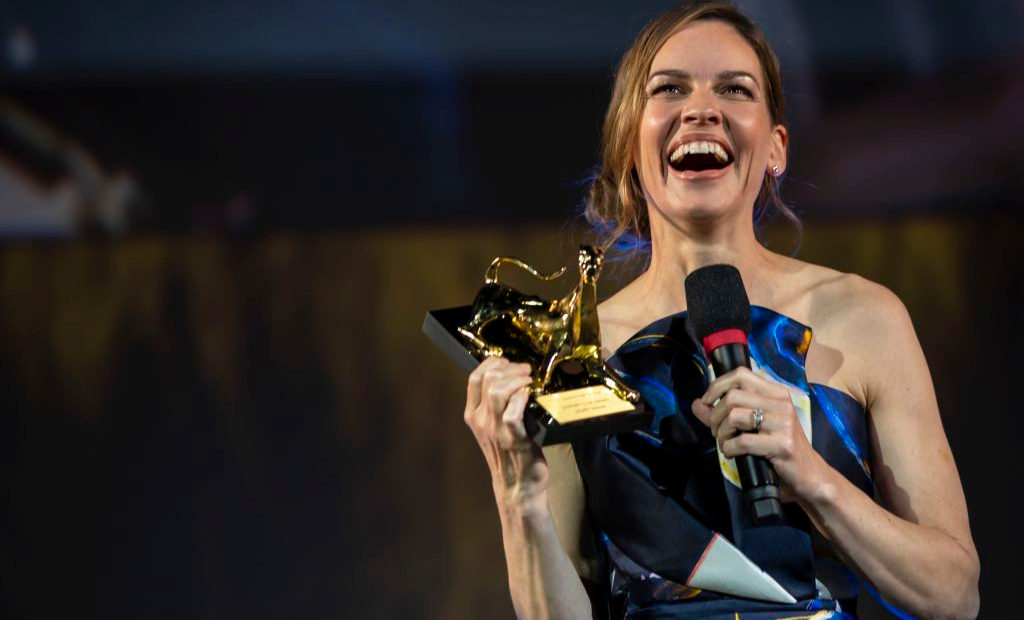
Hilary Swank has collected the Leopard Club Award for lifetime achievement at Locarno Film Festival. The two-time Oscar winner – for Boys Don’t Cry and Million Dollar Baby – spoke about her distinguished career, LGBT rights and her hopes for the future at a press conference held up in the mountains overlooking Lake Maggiore.
Could you give an example of a moment when you felt like an outsider? When have you seen things happening in the world and felt like an outsider?
When I was a kid; I just think it’s part of your marrow – it’s a part of your makeup, it follows you. There’s not a specific instance but it’s just sometimes you carry that [outsiderness] with you and then you have to remind yourself, “Oh that’s old stuff it’s not that way anymore”. It’s just part of being human really. We all feel that at times so I don’t think I’m alone in it. It’s something you’re feeling sometimes and it’s not a specific thing.
When you find your tribe, you know your people. I have friends that I can probably count on one hand that I’ve known a long time now and who really know me and see me, and the more you’re seen by the people you love, the less you feel like an outsider.
As a woman in the industry, did that feeling of being an outsider come into play as your career evolved, as you won Oscars? You say that being a woman at the time was like being an outsider – how does that relate to your status right now in the middle of #MetToo and when women are pushing to have more films made? How does that touch you personally?
Being a woman feels like you’re a second-class citizen. If you experience that your whole life and you know how to navigate that, it doesn’t make it feel better but certainly, those are times when you do feel like an outsider. It’s been great that women have really come together in solidarity to support one another in a way that they haven’t probably since American women stood together to get the right to vote, in the 1910s and teens up until 1921. That was a great time of solidarity and I think women are doing that now to help towards equality and inclusivity and equal pay. I mean, to this day I don’t get paid equally to my male counterpart. That hasn’t changed and I don’t think there’s fairness in that. But that’s the industry – this is happening in everyone’s industry across the world but now we’re getting more opportunities for sure, and not just in gender equality but I think in race equality. We’re seeing stories being told of all different types of walks of life and that’s great because clearly the business for so long was being run by white males, and so those were the stories we were seeing more of, those from their point of view. There are so many other ways to see things, and that’s an exciting time for our industry, especially because we’re telling stories about people.
You said you spoke two languages: English and storytelling. How much impact as an actor can you have on the content of the films you are in and does your work as a producer help you to be more in control of the storytelling?
Being a producer, you definitely have more creative say than as an actor solely. You can have it but in the final cut it might not make it, but certainly as a producer you have the ability to not only help craft the story that you’re telling, but you get to choose the artists that you collaborate with, so it’s going to make a huge difference for sure and having that ability to find the stories that you want to tell is wonderful.
Which are the stories you want to tell today to the new public?
You know I actually get asked that a lot and you’d think that I’d have a good answer for it but I don’t. I have a couple of ideas, a couple of comedies that are just silly and fun that I’m actually in the middle of developing, but I have also another story about a Syrian refugee I want to tell that is an unbelievable story about forgiveness and perseverance, a true story. I’m just constantly looking for content and things, and I’m constantly inspired by people. I’m blown away by true stories. I find that true stories – you wouldn’t believe them if they were fiction. There are constant ideas everywhere but getting those rights are harder and harder nowadays because there’s so many people who want to tell stories.
Talking about this idea of the refugee story from Syria, does living in the context of the Donald Trump presidency form a sort of urgency to what you’re choosing next?
No, my desire to tell certain stories has always been the same no matter who the president is. The choices that I’ve made pretty much inform who I am as a person and that’s not going to change no matter what’s happening. I definitely make stories about the underdog and I stand up for human rights.
You were in the Piazza Grande yesterday. How is it to be in Locarno, is it your first time in Switzerland?
I absolutely love to travel, it’s one of my biggest passions and I came to Switzerland for my honeymoon a year ago now and it’s really one of my favourite countries; I really love it. And just being surrounded by all the beauty, the history, to think that this film festival started in ’46, when the rest of the world was at war [sic] and to have this community. Switzerland was obviously kind of neutral, or very neutral. People were flocking here and watching movies and I think that’s just incredible and that it’s still happening, and the festival is still so strong today. It was beautiful seeing images projected onto buildings; that in itself was like an art installation. More than ever it’s so important to have art and have that place to go to escape or relate, and it’s just a great honour to be a part of it.
Talking about the discipline as an actor, how important were your beginnings as a gymnast for choosing roles?
I’m so happy that word [discipline] is being used because I find that discipline, in general not just in this art form – in general as human beings – is super important for anything you want to achieve. Really being disciplined and diligent and vigilant and having perseverance is the key to everything – and to be open-minded, clearly. I found that sports were a great teacher of discipline. I actually had a gymnastics coach who said to me, “Can’t means won’t and won’t means push-ups”, so I quickly learned not to use “can’t” in my vocabulary, even though I don’t mind doing push-ups because I like to exercise – but not all day! I find that we are really our own biggest obstacle. If we can get out of our own way and just work hard we can really achieve anything.
When you started out in Hollywood as an actor, how do you remember the experience of working on TV shows like Beverly Hills 90210? Would you say looking back that it was a blessing that you got fired because then you could audition for Brandon Teena in Boys Don’t Cry?
No, I wanted to stay on the show! Yes, it was a huge blessing and it’s such a reminder that when something happens that is deemed as a negative you just learn from it. Obviously, I was not happy to be fired, especially when no one was watching the show anymore. When I was fired I thought I wasn’t good enough for a show that no one watched. But when I got over that and then this other opportunity [Boys Don’t Cry] came two months later. That was not only career-changing but life-changing because it was such a great opportunity for me to learn as a human being. Now I have this experience to be a spokesperson for the Hetrick-Martin Institute. I look back at my TV experience – the first nine years of my career – as a great learning experience that prepared me for the great opportunities that came later. You know that saying, “The definition of luck is when preparation meets with opportunity?” The TV beginning of my career was that preparation really.
You also did a fair amount of comedy early on in your career. Did that always come naturally to you or did you kind of see a way into comedy?
I was kind of the class clown and the one that made everyone laugh growing up and so it just seemed like a natural extension of who I was in the beginning and then when I wanted to start doing drama I was told that I was too “half-hour” – not funny but “half-hour” because I only did 30-minute comedies. It was kind of a backhanded compliment. But you know my mum laughs because she says: “You should really win an award for tricking everyone into thinking you’re so serious”. I really love comedies but I love drama – I love it all, I’d like to do an action film too.
In Boys Don’t Cry and Million Dollar Baby you changed your physique for two incredible roles. How has it affected your way of acting and thinking in a world like Hollywood, in which women have standards that they have to fit into?
Well the exciting thing – the decision I made early on without even recognising it – was that I was not to play a role in which I was objectified, playing roles where you had to look a certain way to make it. So making that choice to play real people was more exciting. I was offered opportunities to play the person on the arm and that was really boring because there’s more to those women as well and they weren’t being depicted in a way that I felt was representative of them either. So to me when you do a type of body transformation or vocal transformation it definitely helps you get into a character. When you go in and you start using that voice or you change your body, you don’t walk around like you anymore and that clearly helps in playing a character and helps to feel more genuine to that character.
Every night before you go to sleep you say three things that you’re thankful for. So what were the three things you said last night?
Actually, I said that I was really grateful that I get these opportunities to travel, to experience different places. I find that because I didn’t finish high school, I mean I got my GED but I didn’t finish like everyone else usually finishes, and travelling has been my education. It’s been the greatest thing for me as a human being by far so I was extending that gratitude. I was actually feeling really grateful for my husband and the partner that I’ve met to share life with, and you know they say that “distance makes the heart grow fonder”. I already love him so much but just being away I was just really appreciative of what I call my pack, my family — my dad lives with us too. And then I was saying, “oh thanks to the hotel for making me this pain au chocolat”. They didn’t have any the first morning and I was like, “what! But I’m in Europe!” and they were like “Oh no we make a bread that has no sugar in it” and I’m like, “oh, but where’s the chocolate?” and they made me one. That was pretty nice I thought, just the kindness of a person and to do something nice for somebody else.
Was there a difference between winning the first Oscar and the second?
It’s still astounding that I have one, let alone two. When people say it I’m like, “what, what do I have?” Just because it is a byproduct of doing something that you love so much and that’s already the gift, that’s already the award, and then you have this. I sit in that auditorium with all of these people that I admire so greatly and I don’t know if you guys have Sesame Street here? That one part where it’s like “one of these things is not like the other”, and then they point out the one thing that wasn’t? I was always like, people are going to go, “you, what are you doing here?” I guess that would extend to my outsider feeling that I was like, “am I going to be caught out here?” But it’s a crazy, crazy feeling, it’s like nothing I’ve ever really experienced – you can’t believe it’s happening. I don’t know how else to explain it. I don’t know what else I could relate it to that feels quite the same. It’s a great honour. It just blows my mind.
You were first in Buffy The Vampire Slayer, but you seem to be returning to drama now, to tell stories. What does that mean, that you have to go to genre to be able to tell stories that are close to you?
I wouldn’t say going back to. Throughout I’ve always sort of peppered in some genre stuff and I think that’s part of being an entertainer: doing stuff that is different and gives me the opportunity to challenge myself in a different way. Doing these true stories where they end in a really sad way takes its toll on my soul.
Boys Don’t Cry came out 20 years ago. What do you think the film says about gender and identity today, as well as when it was released? There’s a particularly fraught debate in the UK about trans rights at the moment and I just wondered how relevant the film is to these conversations?
Still to this day, people still come up to me and say thank you, Boys Don’t Cry either saved my life or gave me the ability to communicate who I feel I am inside, and that is so huge to me. It’s not something that I would have imagined as just being an actor – that I would have the ability to touch people in that way. I would hope it impacted me and gave me more courage or gave me a different reason to walk in the world. To be a part of being an artist and telling a story like that and to have that impact this much later is huge. At the time when Boys Don’t Cry was made there wasn’t a lot of conversation about trans people – you would say a transsexual is even different to that. There was all this vocabulary and there still is vocabulary that needs to be used correctly and there’s more vocabulary now than there was then. I don’t even probably use it correctly, but what I will say is that the gay community wasn’t inclusive to the trans community and they said, “No, no, you’re not a part of us, we’re separate” and it was very defined like, “you’re straight, you’re gay, you’re trans, we’re not inclusive of anybody who’s different to us”. And that has changed. We still have a long way to go but that was the start of a conversation that was very important.
What’s interesting is that a lot of people from that community had said, “I’m so happy you’re straight and you told that story”, because if it had been someone who wasn’t I don’t think it would have been as well accepted throughout all different types of views. It would have been a trans story rather than transcending gender in a way and just being about love, giving and receiving love, which I found was really interesting. But now that it’s more of a conversation and it’s more inclusive of all different genders it’s really nice to see that the trans community is getting opportunities to act and tell their own stories, it’s really beautiful that we can now say that because that was definitely not the case 20 years ago.
If Boys Don’t Cry was made today, do you think a trans actor should play the role?
You can go back and say a lot of these things but I think that if it was made now and had never been made I think definitely it would be great if a trans person were telling their story.
I read that one of the most important things you learned from Clint Eastwood was to trust your instincts. Can you give us an example of when you trusted your instincts and it turned out to be the right thing?
All the time. And when I don’t trust my instinct it doesn’t turn out to be the right thing. I mean there are tons of examples but we all understand the idea of having a gut feeling. And then not following it. I’ve never made a choice where I didn’t follow my instinct where it was like a regret, because I’ve learned from all those experiences and I wouldn’t ever change that lesson, but for sure, all the time I’m reminded that you’ve got to trust your instinct. The older I get the more comfortable I am with that, because sometimes you say, “that’s not right for me” and some people get offended, they say, “Oh I really think you should!” and a lot of people that you hire in your life to help you make decisions really want you to be a part of things because they think that would be right for your career or you as a person or whatever. And not even people you hire, your family, we’re formed by the people who are around us and a lot of times we make decisions that maybe our parents wouldn’t want for us or whatever, but it’s really important that people make a choice in their life and follow it, because as far as we know we only have one life and living it to your fullest ability in the way you feel is imperative.
So you’ve never rejected a role and then felt sorry about it?
Well there are times… no I mean usually if I’ve not done something it’s because I’ve really deeply thought about it. I really think about the choices that I make. There have been movies that have been really successful and the actresses have had success with the movie but they were better cast and my passing was the right decision, so I don’t look at it and go, “oh if I would have made that decision I would be in a successful movie now”. I was fired from 90210, and there was a reason I didn’t do that role and they did. And I think that’s also happened in reverse with me, they’ve been offered an opportunity and they passed and I did it and I do believe that fate doesn’t work in such mysterious ways.
Joseph Owen
Photo: Locarno Film Festival/ Marco Abram
Read more reviews from our Locarno Film Festival 2019 coverage here.
For further information about the event visit the Locarno Film Festival website here.

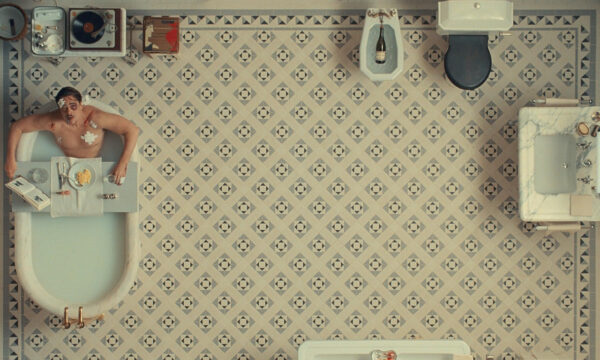
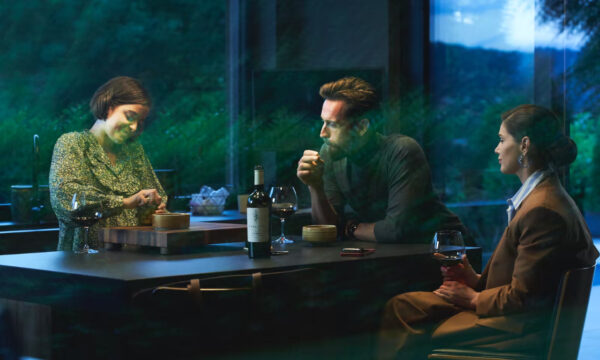
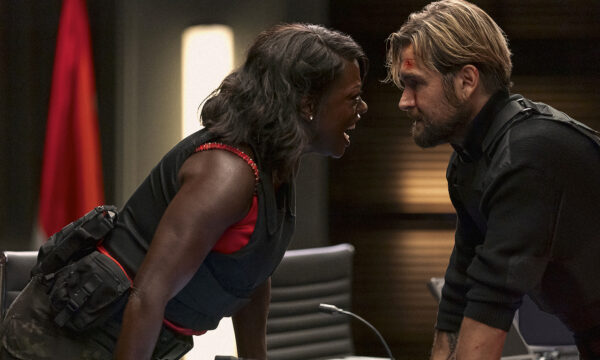
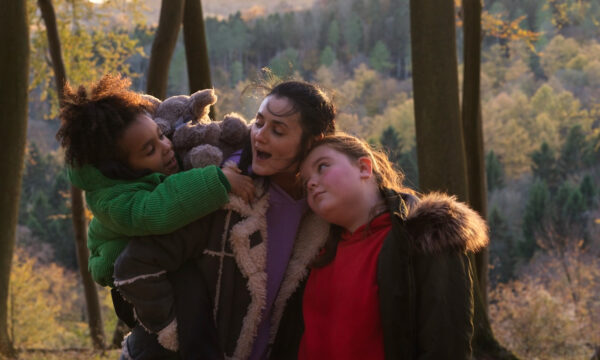
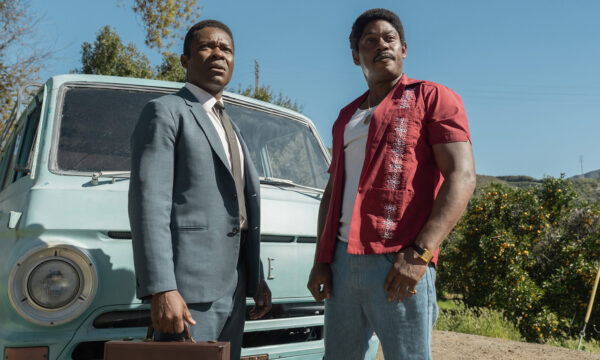
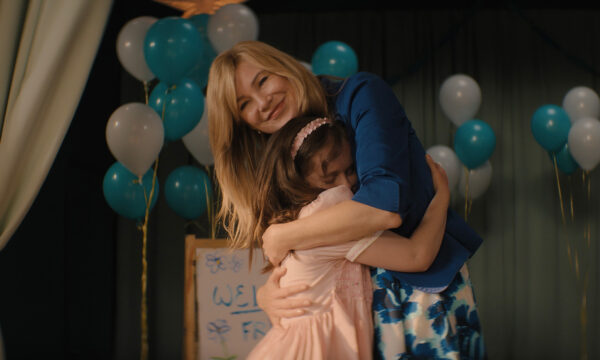
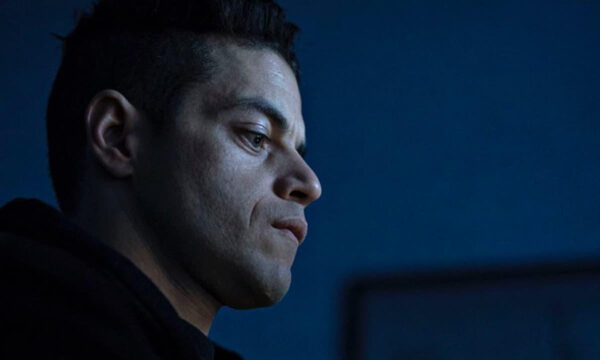
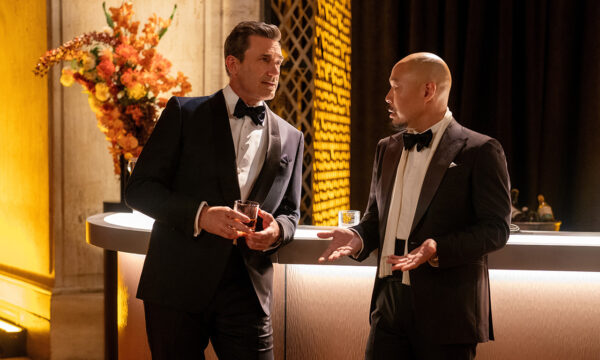
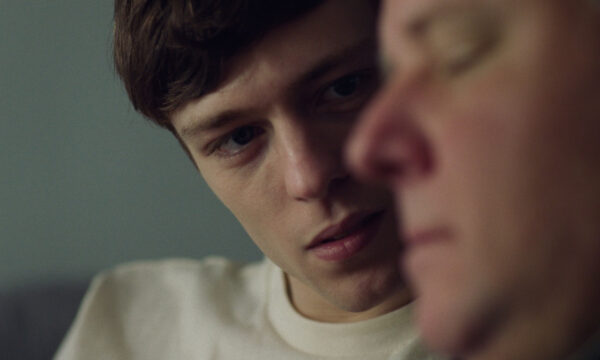














Facebook
Twitter
Instagram
YouTube
RSS